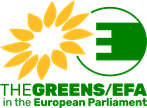Liberal adult education establishments and especially study centres are close to citizens and operate on a grassroots level. They are easily accessible and joining a course does not demand great effort. [:]
It is important that the promotion of sustainable development be included in the official administrative documents of liberal adult education as well as into its strategic guidelines and curricula. All of these documents must stress how vital it is to make citizens more aware of the significance of sustainable development. A separate campaign on fighting climate change already exists – liberal adult education could play a considerable part in implementing this campaign.
Citizens who attend courses on sustainable development in liberal adult education establishments can choose the themes they find important. They can also put forward suggestions on themes they find would deserve more attention. Students who attend liberal adult education classes are motivated; activities should be organised in establishments where students want real change.
Learning to participate and the strong sense of citizenship that participation engenders hold great opportunities for liberal adult education. People who participate in liberal adult education are often active opinion leaders.
Liberal adult education for sustainable development is the key to a transparent functional democratic society. The Finnish Ministry for Foreign Affairs’ Helsinki Process recognised the Aarhus Convention which was originally an initiative of the World Commission on Environment and Development and the Earth Summit in Rio. The Aarhus Convention tries to ensure that the citizens of all countries have the right to know about major changes in their own living environment, that they have the necessary tools to participate in decision-making, and that they have the means to appeal against decisions taken. This approach could prove to be very beneficial in international sustainable development education projects when trying to build a strong civil society.
It is a sign of the times that societies are becoming more and more complex – notably because of technological developments, the globalisation it entails and the speed with which changes happen. It is becoming increasingly difficult to fathom problems and solutions. This all creates insecurity, which extremists know full well how to exploit.
Citizens that participate in liberal adult education courses develop critical thinking skills, and are therefore capable of critically evaluating different local and global solutions related to sustainable development. Based on these evaluations, they are ready to make their own personal choices – choices which are of enormous importance for sustainable development. People get a real sense of enjoyment once they realise that having an influence can start with small things, such as with “joining” the Pick a Piece of Rubbish a Day movement.
Sustainable development should be seen as a process of constant dialogue where people enlighten both themselves and others. Sustainable development is being viewed as a test of strength for economic, environmental and social dimensions. This is somewhat questionable if at the end of the day “competitiveness” still overrides concerns over ecology and social cohesion. If education is meant to open up to society, these conflicts of interest have to be acknowledged.
In order to succeed in this, the definition of sustainable development must be clarified. I like to go back to the Brundtland Commission’s original definition whereby the actions of people today may not jeopardise the living conditions of future generations. When put that way, citizens quickly realise what sustainable development means and why seemingly insignificant personal choices play such an important part in building the future.
We must start with things which hold importance and significance to citizens.




